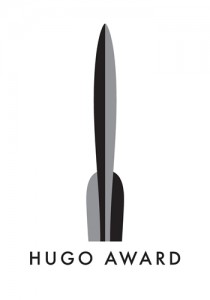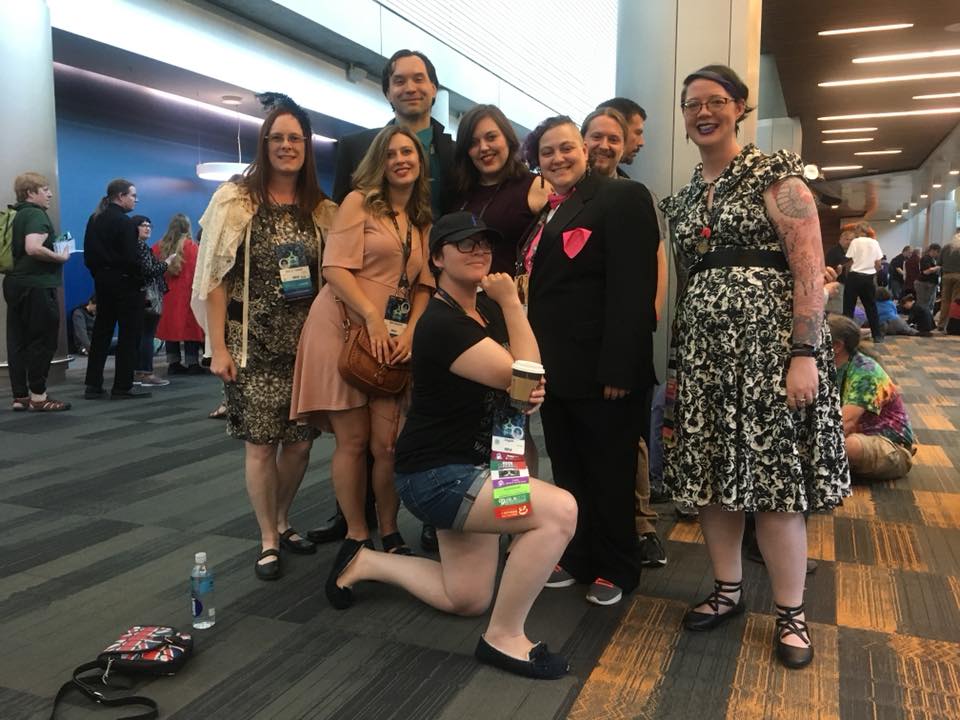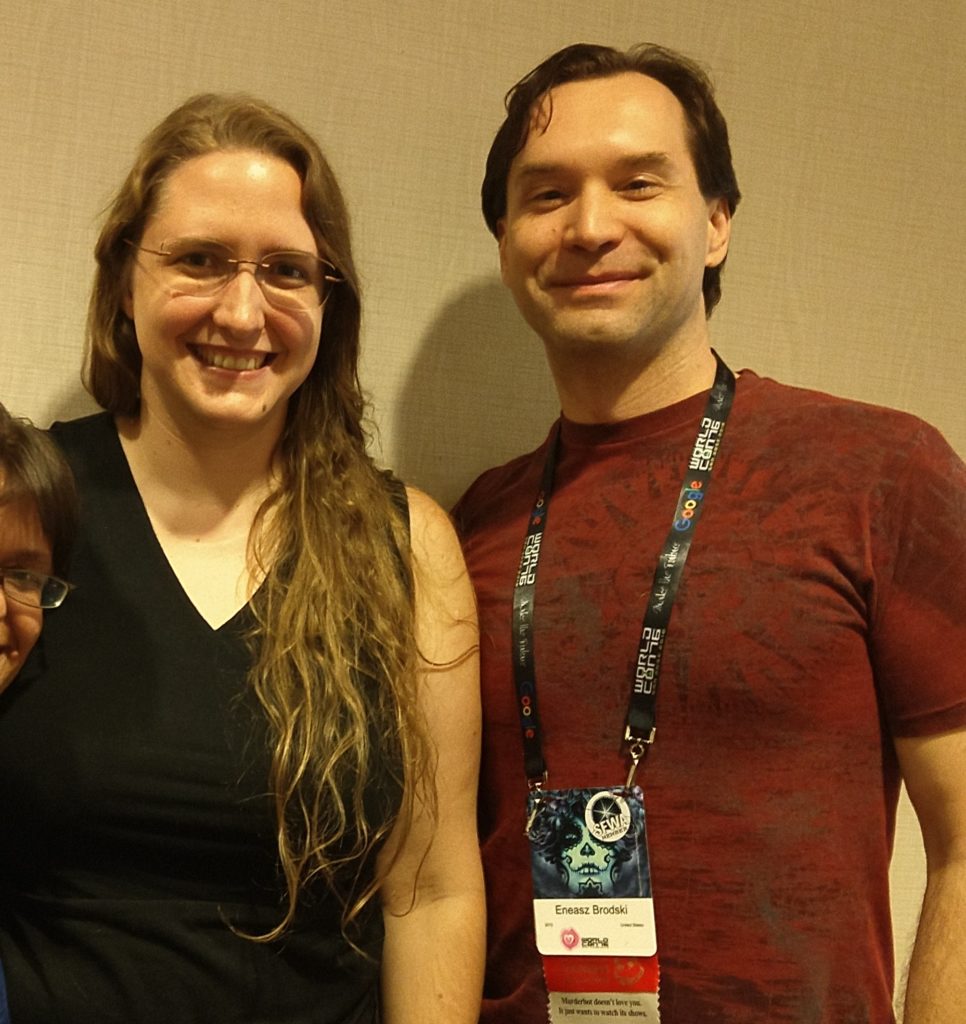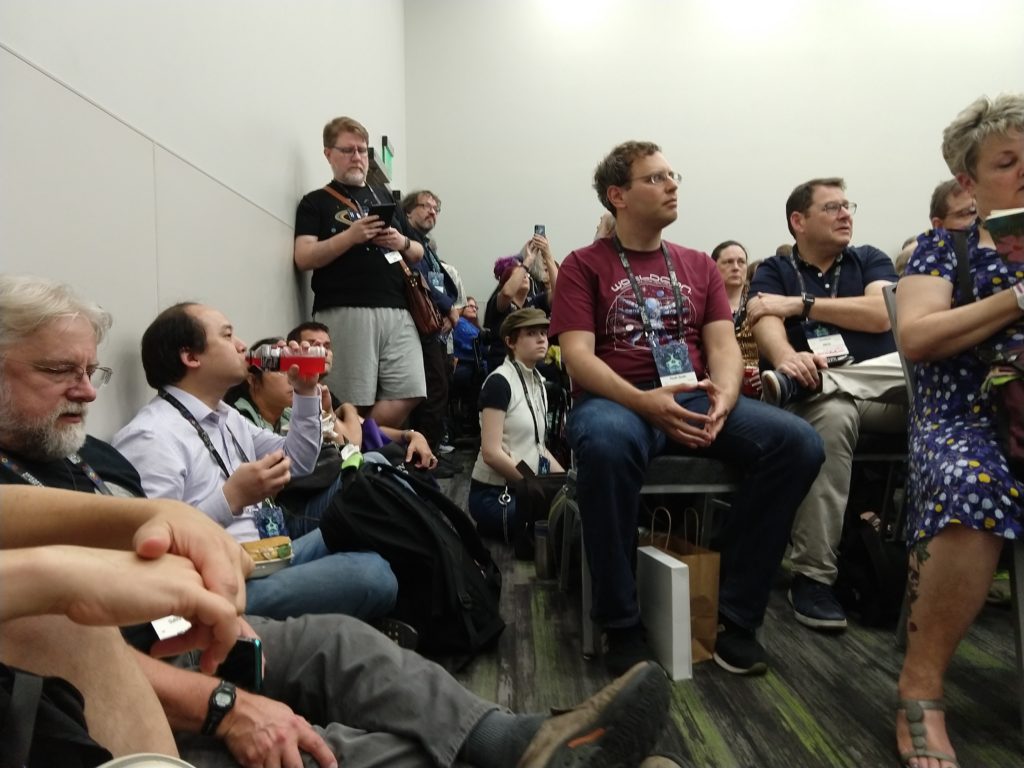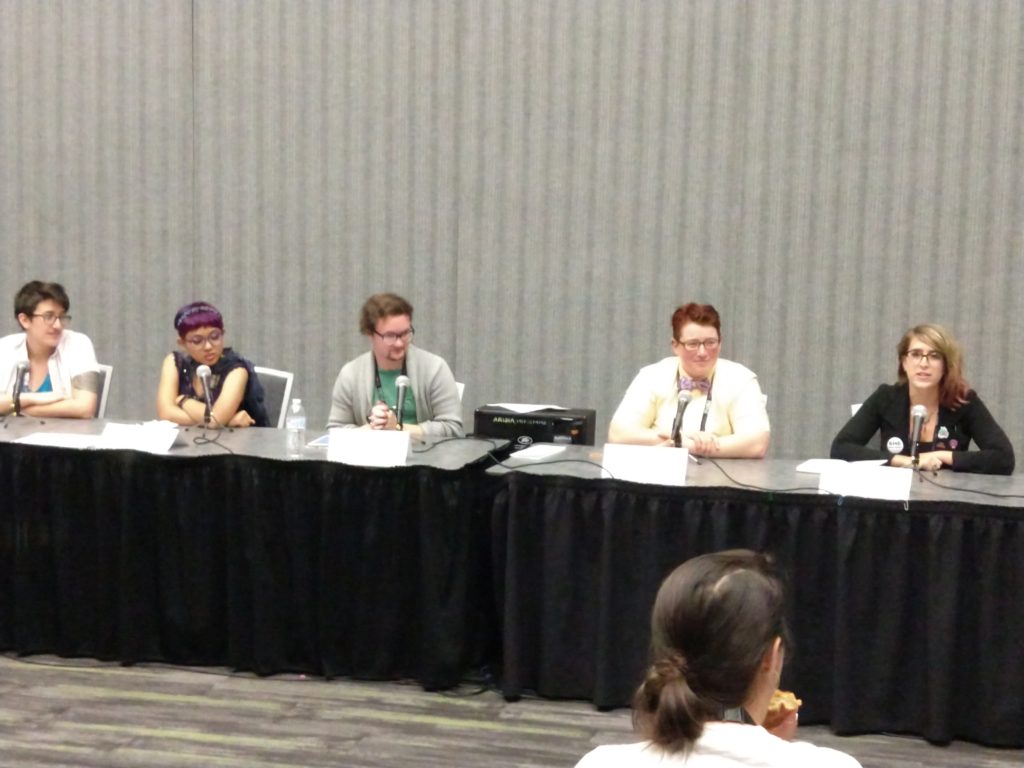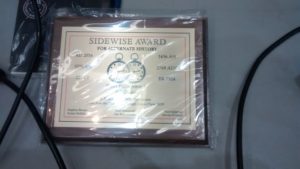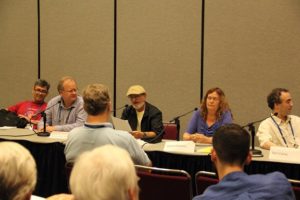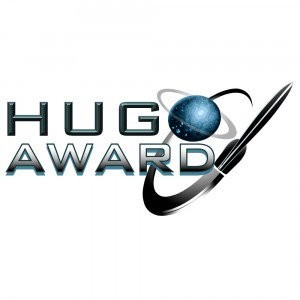 I hate to say this, because I fear I’m going to isolate people I like. But we have to have a talk about the Hugos.
I hate to say this, because I fear I’m going to isolate people I like. But we have to have a talk about the Hugos.
I. Trail of Lightning should never have been a finalist.
It’s not just that it’s a basic wire-rack monster hunter pulp-fiction novel. In my personal opinion, yes, that should be enough to disqualify any work. The Hugo is one of the premier awards in SF fiction. It should go to novels that are innovative, pushing the genre forward. Or that have something important to say about being human, or something urgent to say about the state of the world. It needs to have a higher purpose than just basic entertainment. Trail of Lightning is exactly the sort of pulp adventure that my father mocked me for reading when I was younger, because he didn’t know authors like Heinlein and Le Guin and Jemisin existed. The Hugo awards exist exactly for the purpose of highlighting works that mean more than just a thrilling read.
BUT I know not everyone shares that view. Some people do think that awards should go to things that are just very good at being very entertaining. (I contend those books already get the award of “Best Seller” status, but hey, I guess that’s not enough?). I know this in part because every year something is in the finalist list that makes me roll my eyes and feel like an elitist jerk for a few days.
Unfortunately, even if one contends that pulp adventure is worthy of at least being considered for an award, Trail of Lightning is not a great specimen of that species.
II. This is not Roanhorse’s fault, or issue!
I would first like to stress that I am not saying that Rebecca Roanhorse is a bad writer. We know from last year’s short story “Welcome To Your Authentic Indian Experience(TM)” that she can write extremely well, and that she can tackle some very heavy social issues with incredible aplomb. That story was flat-out amazing, and deserved every award and bit of praise it got.
A digression – Simply looking at the timeline of when Authentic Indian Experience was published vs when Trail of Lightning was published, and knowing that the publishing industry never gets a book out the door in under six months (which is already breakneck speed), it is extremely probable that Trail of Lightning was written much earlier in Roanhorse’s career. I suspect as Authentic was gaining buzz, Trail’s publisher approached Roanhorse to ask if she had anything already written that she’d never sold, and she dusted off Trail. I could be wrong, but that seems more charitable than assuming it was a rush job.
The point is, Trail of Lightning is an example of an “early novel.” Many authors are lucky enough to have these – novels that helped them hone their skills, while providing a small paycheck and the validation/encouragement of getting into print, before the authors are very good. Some authors never get these early novels, and a few I’ve talked to say “I’m so grateful in retrospect… they weren’t good novels, and I’m so happy that only my best stuff is out there representing me.” But for every one of those, I’m willing to bet there’s twenty authors who got discouraged and gave up before getting to the X-th novel that was actually Very Good to the point that publishers couldn’t ignore it.
Again, this is NOT a bad thing. To take one example of a man who is rightly called a genius by all readers of genre, and is a British National Treasure – Terry Pratchett. His later writing is absolutely legendary, and you can’t read it and not be completely blow away. But his first several novels? They just aren’t that good. Even the best writers of a generation started out with wobbly fare.
There are authors currently writing in the monster hunter genre that have been at it for many years, with a dozen or more titles under their belts. While I don’t think the works are award-worthy (see above), they are, at least, among the best examples of the species. After so many repetitions of the formula, it’d be hard for those authors NOT to have improved. Some of these authors even openly state that their earlier books aren’t the best, and direct new readers to start a bit later in the series. It’s hard to compare their later works with Trail of Lightning and not see the difference.
III. This is not the publisher’s fault either
Trail of Lightning’s publisher, Saga Press, was doing exactly what a publisher should. They saw a rising talent, knew people would want to read more of her work, and snapped up anything they could get their hands on. They then published it in an effort to turn a profit. This is good for the fans, and good for the author. Bravo for Saga, I hope it works out!
IV. The Hugo Voters are to blame
Both the author and the publisher are simply doing the best they can in their careers/situations. It’s not their job to be the gatekeepers of quality, their job is simply to keep getting better and making the written works available (respectively). It is literally the job of the nominating Hugo readers, the gatekeepers of the Hugo award, to filter the best that our community has to offer. And yet a large number of these people came together and collectively nominated a less-than-stellar “early novel” of the mindless-pulp variety for one of the most prestigious awards the SF community can give out. How did this happen? Either a lot of people nominated Trail of Lightning without reading it, based on the strength of Authentic Indian Experience… or they did read it, and nominated it anyway.
The really dumb part is that Trail of Lightning isn’t even a social-issue book. It’s a straight-up plain monster hunter novel. The only way one could draw it into the culture-war narrative is by focussing on the author and looking back at her other works and noticing that last year’s Authentic Indian Experience was explicitly about cultural issues. “These two works are by the same author” is not enough to make a pulp novel have a social theme or message.
V. This hurts minorities
Look, the really despicable thing about the Puppies movement of a few years ago is that they decided to vandalize the Hugos because they said that authors were getting awards NOT because the works were of high-quality, but because they were minorities and were getting “affirmative action-ed” in. Jemisin specifically called this out in her world-rocking acceptance speech when she said her detractors claim “that people like me cannot possibly have earned such an honor, that when they win it it’s meritocracy but when we win it it’s “identity politics”.” Her speech still gives me shivers, but one of the things that gave it such joyous strength is that it was so blatantly obvious that she had written one of the best things to have been published in years. She deserved every single ounce of praise that comes with that trophy, because she produced a work that shines with the light of the sun, and puts the claims of the Puppies to hideous shame. There is no need for affirmative action, you assholes, the work speaks for itself, just read it and see!
Nominating a work that is clearly not worthy of this honor doesn’t help anything. Instead it diminishes the achievements of authors like Jemisin or Chiang, because it throws previous nominations into some doubt. Most people don’t know of the excitement of a breakout work of genius like Authentic Indian Experience, and how that exuberance will lead people to snap-vote for the next thing an author puts out without even reading it. They won’t ever get to hear about that, they’ll just see a book that clearly shouldn’t be a nominee, yet is, and will draw their own conclusions… and given the current culture wars, not all those conclusions will be good. And those conclusions will tarnish other winners, those whose only failing was being non-white in the crap-ass world we have right now.
VI. The irony is not lost on the historically-aware
Perhaps the most ironic thing about all this is that this is exactly the sort of novel the Puppies wanted to see in the Hugos. Pulp adventure novels about tough-ass monster hunters. Books whose commercial concerns outweigh artistic ones. Someone I spoke with also claims that their baseless idiotic vandalism created a backlash that has put cultural concerns before quality concerns in the Hugos — in effect bringing the Puppies’ distorted claims closer to reality. I’m not so sure, I think it’s much more due to the rise of Trump than anything the Puppies did. Regardless, they probably got a chuckle or two out of it. >.<
VII. Only You Can Prevent Forest Fires
Look, what’s done is done. But going forward, more focus on content and less on works viewed primarily (whether rightly or not) as anti-“the other tribe” would be good. Keep the Hugos out of the culture wars, please.
 The Hugo Nominees are out. As always, I link all the short works that are available free online on my blog, for easy reference for my book club. If you have a book club, taking one meeting to read all these and discuss them is a great use of a meeting!
The Hugo Nominees are out. As always, I link all the short works that are available free online on my blog, for easy reference for my book club. If you have a book club, taking one meeting to read all these and discuss them is a great use of a meeting!